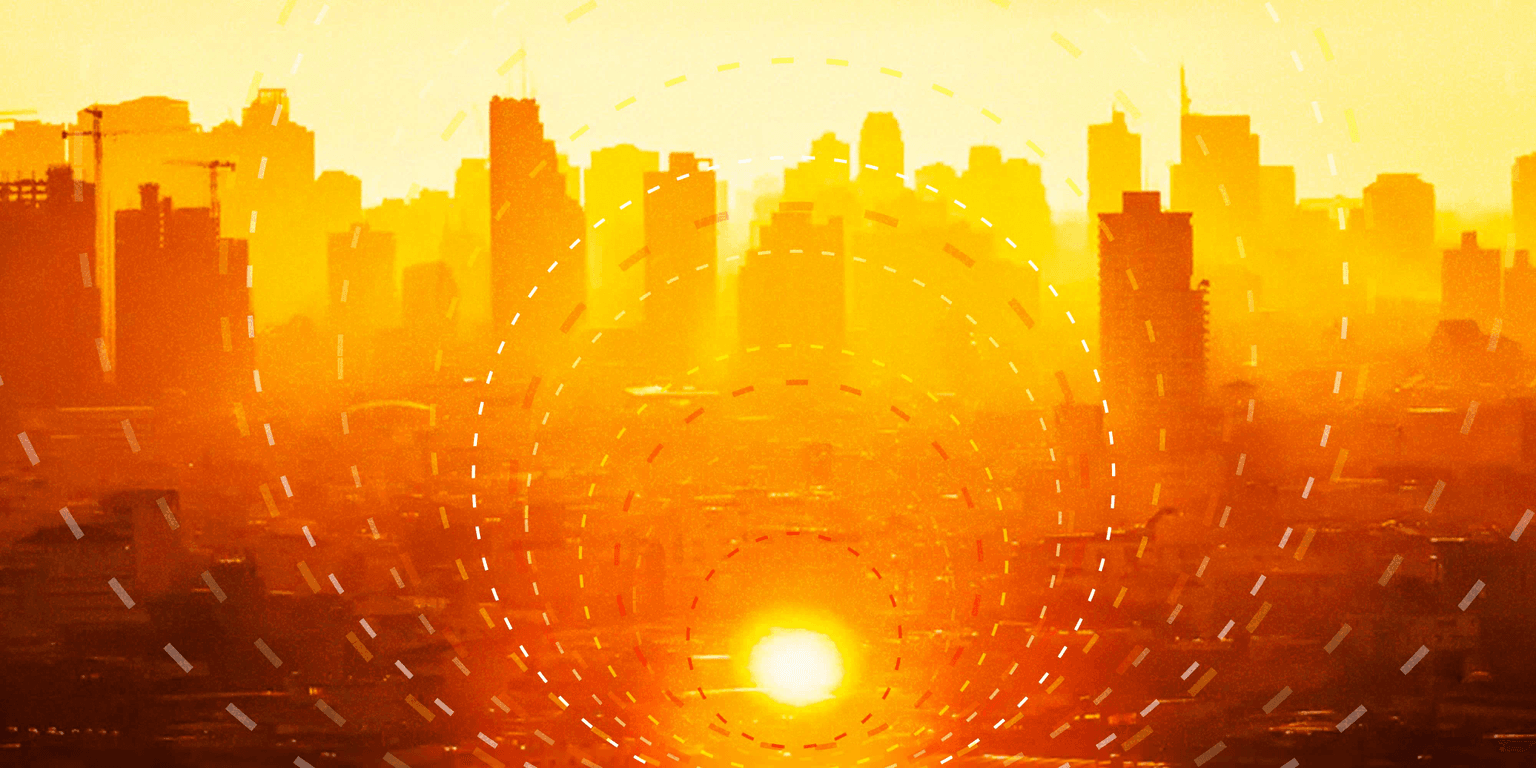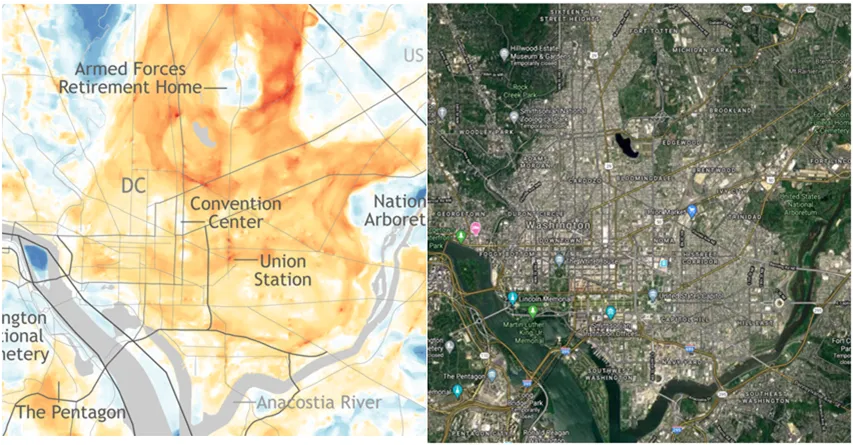Nature can be used to reduce Urban Heat Islands
Natural land cover can keep cities cool.

Key Points
- As our planet gets hotter, the impact of Urban Heat Islands is becoming more severe.
- Trees, green roofs, and vegetation can help reduce Urban Heat Island effects by shading building surfaces, deflecting radiation from the sun, and releasing moisture into the atmosphere.
- A new and powerful tool, a NatureScore®, allows users to quickly determine the relative amount of nature around their location.
Urban Heat Islands
"Urban Heat Islands" occur when cities replace natural land cover with dense concentrations of pavement, buildings, and other surfaces that absorb and retain heat. This effect increases energy costs (e.g., for air conditioning), air pollution levels, and heat-related illness and mortality. Further, climate change will likely lead to more frequent, more severe, and longer heatwaves during summer months.
Many city officials worry that intense summer heat could create uncomfortable conditions for residents, as well as reduced tourist attraction in summer months. Furthermore, extreme heat events often affect our most vulnerable populations first; indeed, heat-related mortality rates for the elderly have increased markedly in the last decade. Trees, green roofs, and vegetation can help reduce Urban Heat Island effects by shading building surfaces, deflecting radiation from the sun, and releasing moisture into the atmosphere.
As the image below shows, a lack of natural elements can provide an excellent predictor of where Urban Heat Islands may occur. Note that the areas with the least vegetation cover are generally the hottest; red areas are hotter while blue areas are cooler.

NatureQuant analyzed data from 4,165 census tracts using the CalEPA Urban Heat Island Index and found that the NatureScore® by census tract accurately predicted the prevalence of Urban Heat Islands. In coastal cities with consistent coastal winds, the correlations were weaker (R: 0.22), but for inland cities, a stronger connection was found (R: 0.38). While many factors influence the existence of an Urban Heat Island, NatureScore® can provide a helpful proxy.
While it is now increasingly understood that nearby nature bestows powerful health benefits, the mitigation of Urban Heat Islands is another reason for individuals, city planners, and businesses to track and monitor nature.
To reduce the Urban Heat Island effect (as suggested by the EPA Green Infrastructure Department):
- Build green infrastructure improvements into regular street upgrades and capital improvement projects to ensure continued investment in heat-reducing practices throughout your community.
- Plant trees and other vegetation; space in urban areas might be limited, but you can easily integrate small green infrastructure practices into grassy or barren areas, vacant lots, and street rights-of-way.
- Make traditional water quality practices serve double duty by adding trees in or around roadside planters and using other green infiltration-based practices to boost roadside cooling and shading.
- Transform your community one project at a time by planting native, drought-tolerant shade trees and smaller plants such as shrubs, grasses, and groundcover wherever possible.
- Build green roofs; green roofs are an ideal heat island reduction strategy, providing both direct and ambient cooling effects. In addition, green roofs improve air quality by reducing the Urban Heat Island effect and absorbing pollutants. Many communities offer tax credits for installing green roofs.